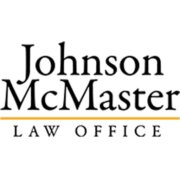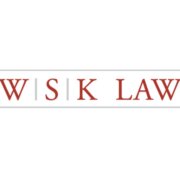Best Renewable & Alternative Energy Lawyers in Cambridge
Share your needs with us, get contacted by law firms.
Free. Takes 2 min.
List of the best lawyers in Cambridge, Canada
About Renewable & Alternative Energy Law in Cambridge, Canada
Renewable and alternative energy law in Cambridge, Canada is a fast-growing area of legal practice that deals with the production, distribution, regulation, and usage of energy derived from sources such as solar, wind, hydroelectric, geothermal, and bioenergy. With Canada’s commitment to reducing greenhouse gas emissions and shifting away from fossil fuels, cities like Cambridge are increasingly encouraging the development and adoption of sustainable energy solutions. As technologies and policies evolve, both individuals and businesses face a complex set of legal rules that govern renewable energy projects, incentives, land use, and compliance with federal, provincial, and municipal regulations.
Why You May Need a Lawyer
Seeking legal guidance is essential in various aspects of renewable and alternative energy in Cambridge. Some of the most common situations where legal advice is invaluable include:
- Negotiating contracts for installing solar panels or wind turbines on private or commercial properties.
- Understanding and complying with local zoning and building code requirements for renewable energy projects.
- Navigating government incentive programs, grants, and subsidies for renewable energy initiatives.
- Handling disputes with utility companies regarding energy feed-in tariffs, grid connections, or buy-back rates.
- Resolving neighborhood or community concerns related to the visual, environmental, or noise impacts of renewable energy installations.
- Financing and investment structuring for renewable energy development and partnerships.
- Addressing environmental approvals, permits, and impact assessments required by law.
- Protecting intellectual property related to new energy technologies or processes.
Local Laws Overview
Several key legal aspects impact renewable and alternative energy in Cambridge:
- Provincial Regulation: The Province of Ontario sets the framework for energy generation and distribution. The Ontario Energy Board and the Ministry of Energy oversee licensing and approval processes, while the Independent Electricity System Operator manages energy procurement programs.
- Municipal Bylaws: The City of Cambridge establishes zoning bylaws, building permits, and other requirements that affect where and how renewable energy projects can be developed, including setback distances and height restrictions for structures like wind turbines and solar panel arrays.
- Environmental Compliance: Environmental assessments, regulated by both federal and provincial agencies, may be required for larger projects. Developers must demonstrate that their projects comply with environmental protection laws and do not negatively impact local ecosystems.
- Interconnection Rules: Projects that aim to connect to the electricity grid must comply with interconnection standards, which address technical and safety requirements as well as agreements with local utilities.
- Incentives and Rebates: Legal advice is critical to navigate several available programs that offer financial incentives for adopting renewable energy, such as the Canada Greener Homes Grant and provincial rebate programs.
Frequently Asked Questions
What types of renewable energy projects are most commonly approved in Cambridge?
Solar energy installations on rooftops and properties, small-scaled wind turbines, and ground-source heat pumps are among the most common projects. Larger-scale energy generation may need further review and approval.
Do I need a permit to install solar panels on my home?
Yes, you generally need a building permit from the City of Cambridge if you are installing solar panels, especially if the installation changes your building’s structure or is of a size that impacts safety or zoning.
Are there incentives available for renewable energy installation in Cambridge?
Yes, there are federal and provincial incentives, such as the Canada Greener Homes Grant, as well as some local programs, which can provide rebates or financial assistance for qualifying projects.
Can I sell excess electricity generated from my renewable system back to the grid?
Most residential and small business systems can participate in net metering or similar programs, allowing you to return excess electricity to the grid and receive credits towards your energy bill.
What zoning restrictions apply to wind turbines or solar farms?
Zoning bylaws may restrict placement based on factors such as setback distances from property lines, height limits, noise levels, and proximity to environmentally sensitive areas or residential zones.
How do environmental laws affect renewable energy projects?
Certain projects must undergo environmental assessments to ensure they do not harm local wildlife, habitats, or water quality. Permits may be required depending on the scale and location of the project.
Do I need approval from my local utility before installing a renewable energy system?
If you intend to connect to the electrical grid, yes. Utility providers must approve interconnection and ensure your system meets technical and safety requirements.
Can community groups start a shared renewable energy project?
Yes, community energy projects are possible in Cambridge but require careful legal planning to manage ownership, financing, permitting, and compliance with municipal and provincial regulations.
Is it possible to challenge the development of a renewable energy project?
Yes, residents can raise objections through formal processes based on concerns such as environmental impact or violations of zoning laws, but success depends on compliance and public consultation obligations.
Where can I find a lawyer specializing in renewable and alternative energy law?
Many law firms in Cambridge and the surrounding region offer services in environmental and energy law. It is advisable to choose a lawyer with relevant local experience and up-to-date knowledge of changing regulations.
Additional Resources
You can find information, assistance, and resources regarding renewable and alternative energy in Cambridge at the following organizations and agencies:
- City of Cambridge - Building Services and Local Planning Departments
- Ontario Energy Board
- Independent Electricity System Operator (IESO) Ontario
- Ministry of Energy, Northern Development and Mines (Ontario)
- Natural Resources Canada - Office of Energy Efficiency
- Canada Greener Homes Grant Program
- Waterloo Region Environmental Sustainability offices
- Canadian Solar Industries Association (CanSIA)
- Ontario Sustainable Energy Association
Next Steps
If you are considering a renewable or alternative energy project, or are facing legal challenges related to energy in Cambridge, follow these steps:
- Research your current needs and goals for the project.
- Contact local government offices for preliminary information on permits and requirements.
- Document your project details, anticipated impacts, and any financial or technical support you may need.
- Consult with a lawyer who has experience in renewable and alternative energy law in the Cambridge area.
- Prepare questions and concerns to discuss during your legal consultation, including regulatory compliance, incentives, and any community or environmental issues.
- Stay informed about changes to municipal, provincial, and federal energy policies that may affect your project.
Taking these steps will help you navigate the legal landscape of renewable and alternative energy in Cambridge and ensure your project moves forward successfully.
Lawzana helps you find the best lawyers and law firms in Cambridge through a curated and pre-screened list of qualified legal professionals. Our platform offers rankings and detailed profiles of attorneys and law firms, allowing you to compare based on practice areas, including Renewable & Alternative Energy, experience, and client feedback.
Each profile includes a description of the firm's areas of practice, client reviews, team members and partners, year of establishment, spoken languages, office locations, contact information, social media presence, and any published articles or resources. Most firms on our platform speak English and are experienced in both local and international legal matters.
Get a quote from top-rated law firms in Cambridge, Canada — quickly, securely, and without unnecessary hassle.
Disclaimer:
The information provided on this page is for general informational purposes only and does not constitute legal advice. While we strive to ensure the accuracy and relevance of the content, legal information may change over time, and interpretations of the law can vary. You should always consult with a qualified legal professional for advice specific to your situation.
We disclaim all liability for actions taken or not taken based on the content of this page. If you believe any information is incorrect or outdated, please contact us, and we will review and update it where appropriate.










